LACONIA — Most candidates for city council and mayor participated in a forum at the Belknap Mill Wednesday evening, where the discussion traversed a litany of political topics, but focused on homelessness, housing affordability and the State School project most prominently.
The forum, organized in large part by Citizens for Belknap, a political action group, offered candidates a minute each to address questions written by city voters, and drew a crowd of nearly 130. The Municipal Election is Tuesday, Nov. 4. Polls are open from 8 a.m. to 6 p.m.
Moderated by attorney David Osman and recorded by Lakes Region Public Access, the only candidates who didn’t attend the forum were Gregg Hough, running in Ward 2; Sheri Minor, running in Ward 4; and Mike Conant, running in Ward 6.
For those who were not able to attend the forum, stream it in its entirety at vod.lrpa.org.
“Citizens for Belknap is honored to have hosted this event with our partners from the Unitarian Universalist Society of Laconia, as a service to the community,” Prudy Morin Veysey, chair of Citizens for Belknap, wrote after the forum. “We’d like to thank the candidates for participating, and the Laconia residents who turned out to ask their questions. It is so important that we’re engaged in our local government.”
Candidates at the forum largely struck an optimistic tone as they fielded written questions regarding housing, the State School property off Parade Road, infrastructure, decorum, the city’s recently-reinvigorated master planning process, and homelessness.
“This is going to be an interesting forum, and it’s important to understand the distinction between a debate and a forum,” Osman said. “This should be an exchange of ideas between you and the candidates.
“Every one of these candidates has strong feelings, they’re committed to the City of Laconia, they want to see things as good as they can be,” he said. “They believe in that passionately, they may have some disagreements but that’s OK — this is politics. I want you to think of this more about governance than politics.”
The city’s elections are nonpartisan per the charter, and many of candidates reinforced that characteristic, though Mike MacFadzen — he’s running for city council in Ward 1 against Jon Hildreth — came out with it straight.
“I am a respectful Republican,” MacFadzen said, insisting he’ll work with anybody, regardless of party. “I think it’s important to know what our party affiliation is, because that brings to you how we look at things. I am not a person who demands likeminded thinking and I will speak to anyone and everyone from either political affiliation.”
On housing, many candidates noted it’s a multifaceted problem, and the market plays an influential role in affordability.
“The urban overlay district that are going to allow additional units in the overlay district — which is Union Avenue, parts of South Main, parts of North Main and going back one street — allowing these people to add units with less regulation,” Hildreth said. “This is really important. In my opinion, a housing-first solution, from my research, has really worked around the country in the places where it’s been available, and I think housing-first is really something that’s important to ending the homeless situation.”
State Rep. Mike Bordes (R-Laconia), who is running for mayor against Ward 1 Councilor Bruce Cheney, said incentivizing housing development is one important approach.
“We cannot have affordable housing without affordable building costs,” Bordes said, noting it costs almost $400 per square foot to build a new home. “That means a 1,000-square-foot house is $400,000, without including the costs of property, infrastructure, and everything else needed for that home, that’s issue No. 1. We need to incentivize builders to build here — whether we give them tax incentives, some sort of fee reduction or something along those lines, we need to incentivize them to build at a lower cost. This thought of flooding the market in order to provide cheaper housing is wrong.”
Ward 3 Councilor Eric Hoffman, who is running unopposed, said dealing with homelessness is a difficult problem.
“I guess I feel the city has wasted an awful lot of resources, chasing these encampments from one place to another in town. I think we’re playing some kind of game of whack-a-mole and we’re not addressing the fundamental issue at all,” he said. “I’d like to see us address the fundamental issue. I think I want people to understand that everyone up here, we all live up here, too, and we’re all just as frustrated with no action being taken as you are. I guess I would challenge you to look at the city budget and tell us, what can we possibly cut that we can put money into this situation? Because that’s the real problem.”
For Cheney’s part, keeping an eye on the State School property development — where Pillsbury Real Estate Developers intend to construct more than 2,000 new units — is going to be a core activity of the next council.
“Infrastructure is a critical part of it,” Cheney said. “We’ve now received the 1,000-page traffic study. Think about North Main Street, and think about Elm Street with 2,000 homes on the State School property. We need some serious help from the developer and from the State of New Hampshire. One consideration that the council needs to deal with is, that’s performance zoning, which means the council has no say in what goes on in terms of development, it’s all done by the planning board. We may need to look at that ordinance again, but it’s a serious concern.”
Ward 2 Councilor Bob Soucy, who is running for reelection against Hough, said Rotary Park has seen improvements based on police department presence.
“Laconia has all of the social services in the county, all here, so everybody comes here to get social services, so we have to find other ways to get that,” he said. “The tax cap, as Eric [Hoffman] talks about, is tying our hands in many places. That’s something we need to address, soon.”
On trespassing, Ward 4 Councilor Mark Haynes, who is running for reelection against Minor, said laws must be enforced.
“One of the problems that I’ve had to deal with, and the question is, what do you do about people that want to be homeless? Yes, we need to enforce the laws, and anyone that breaks the law should be held accountable,” Haynes said. “One of the problems we have is, you can get arrested, you can break the law, there’s a warrant out for your arrest — they don’t even appear in court. The key that’s missing here is the judicial system. Let’s be truthful with ourselves, you can’t make people do something they don’t want to.”
Douglas Robinson, who is running against Ward 5 Councilor Steven Bogert, said the homeless population in Laconia is growing.
“That’s because of our nonprofits and the social services that we have here, right? We’re a magnet, right? When we have homeowners that don’t report encampments on their property, shame on them, but shame on the outreach groups that are going to these camps and not saying something,” Robinson said. “It’s your property, guys, we need to enforce that for you.”
Bogert said he’s worked hard to improve Ward 5.
“When I first became a city councilor, Ward 5 was under siege. We had encampments everywhere, and the city had turned a blind eye to our dilemma,” Bogert said. “What I ended up doing is, I started fighting back. I got the neighborhoods together and we descended upon City Hall, and we worked on getting the Spruce Street encampment out. It’s taken us two years to clean it out. From that point, we moved on to Hounsell Ave., and we squeezed and we fought, and we got Hounsell Ave. cleaned out. As we find them, I personally go into the woods, searching for these illegal camps and I report them to the police, and I walk in there with the police department, and we move them out.”
Ward 6 Councilor Tony Felch, who is running for reelection against Conant, said the city needs to collaborate with the courts.
“One of the things we need to do is work with the courts — that’s where part of the problem is. You arrest them, they’re out on the streets the next day. We need the courts to issue programs, they need to go into a program if there’s mental illness, if there’s drug addiction,” Felch said. “They need to go in these programs and get straightened out, and then have assistance getting back into regular life.”






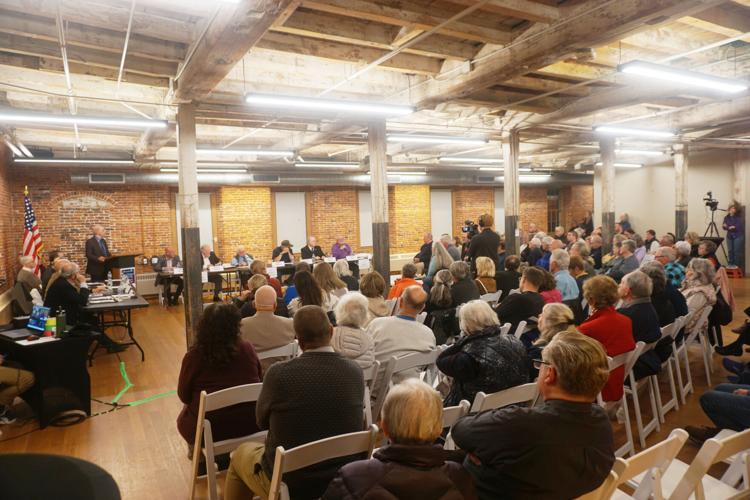
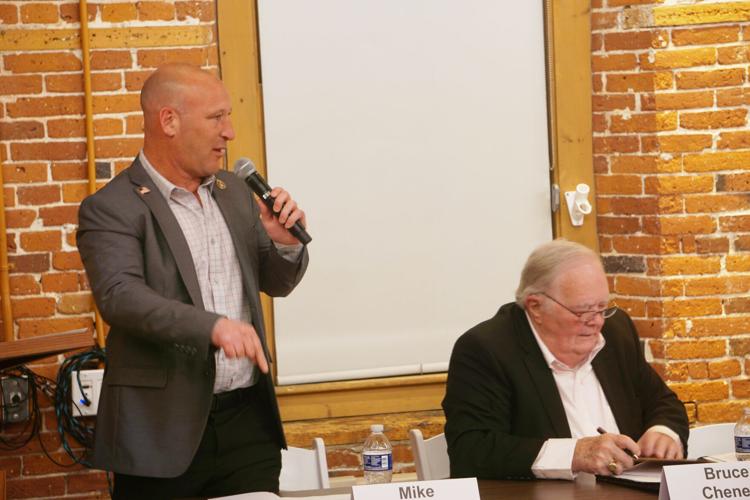
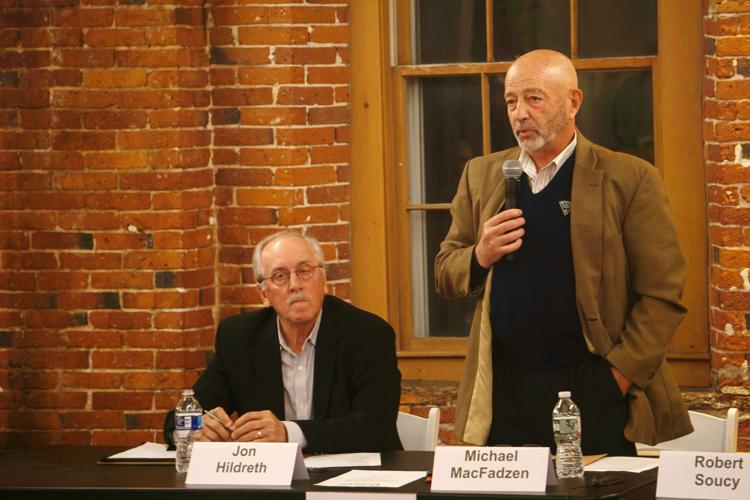
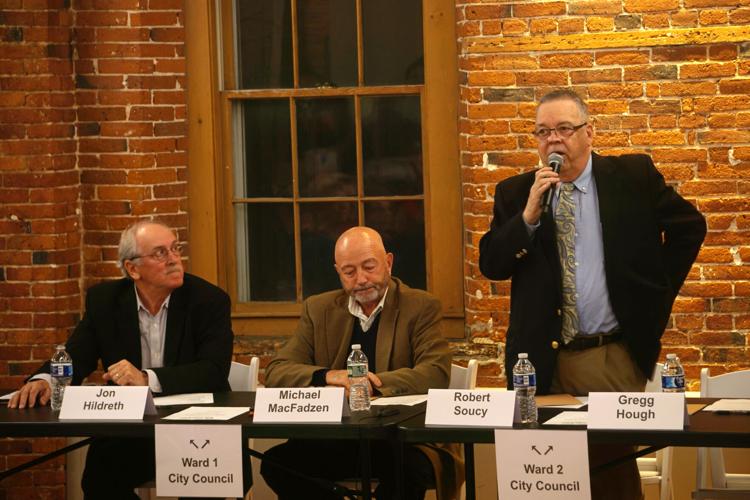
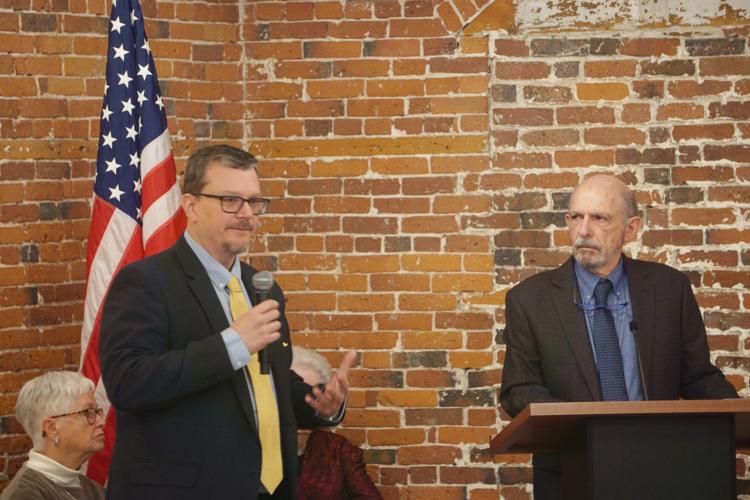
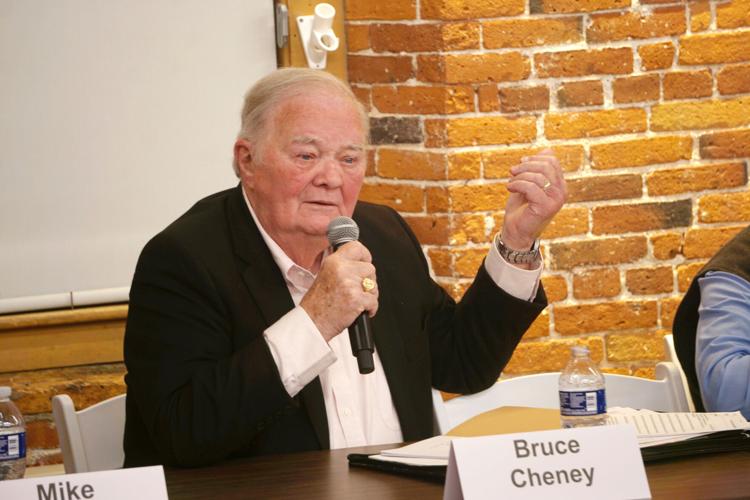
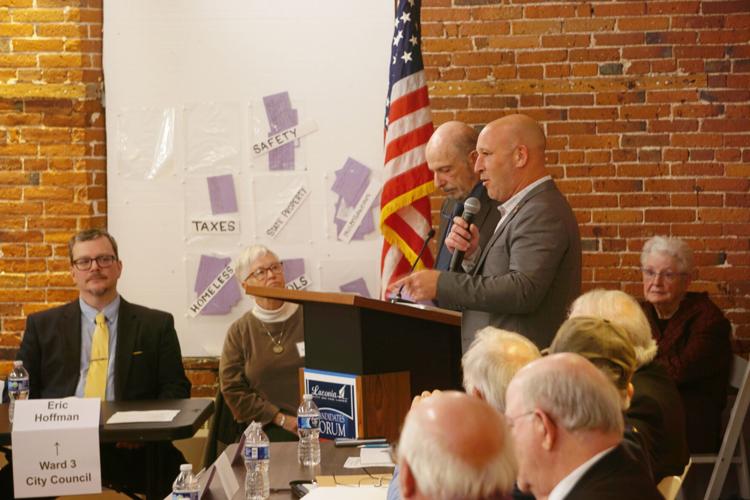
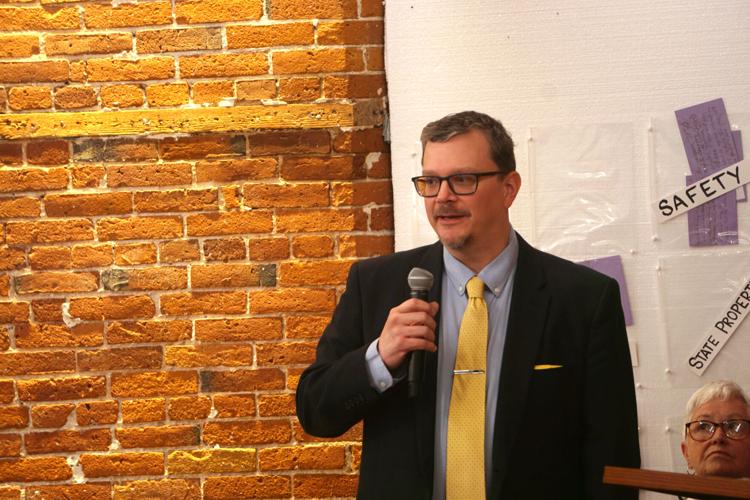











(0) comments
Welcome to the discussion.
Log In
Keep it Clean. Please avoid obscene, vulgar, lewd, racist or sexually-oriented language.
PLEASE TURN OFF YOUR CAPS LOCK.
Don't Threaten. Threats of harming another person will not be tolerated.
Be Truthful. Don't knowingly lie about anyone or anything.
Be Nice. No racism, sexism or any sort of -ism that is degrading to another person.
Be Proactive. Use the 'Report' link on each comment to let us know of abusive posts.
Share with Us. We'd love to hear eyewitness accounts, the history behind an article.